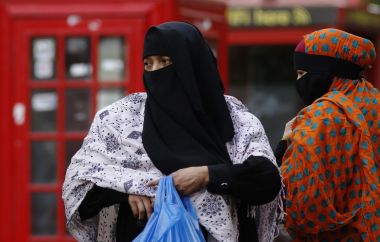The Grand Myth of 'Muslim Community' in the UK

It is a common language. Many people in the UK, including some Muslims, use it. It saves time and energy in media conversations and most importantly helps to fit a thought into 140 characters of Twitter wisdom. Yet it is horribly misleading and potentially harmful.
It is misleading because there is no such thing as "the Muslim community" in the UK. There are Muslims for sure. Yes, Islam as a shared religion with its religious holidays and activities link Muslims, but they are not a single community. There are countless diaspora networks, some small neighbourhoods where people of similar ethnic origins live in close proximity, and a lot of different mosques and myriad Muslim organisations.
Migration patterns might give more numerical precedent or visibility to some groups, but substantial numbers of British Muslims are just like substantial numbers of British Christians. They dwell in multiple networks at work, school, personal life and religious involvement. They might or not be attending a local church (read mosque). They might be praying on their own, listening to sermons on line, and may be dropping in at a church for special days like Christmas and Easter (read Eid).
Some might be Anglicans (read Muslims that are in organised denominations with formal clerical structures), or like free Evangelicals (read mosques centred on a single minister). Some are like the Emergent Christians, (read Muslims who are on a spiritual journey and find it difficult to fit into a formal mosque). Some might cherish their ethnic heritage, go to family reunions, or it might be that they are a nuclear family and really have no enchanting large weddings but a civil registry and no 'exotic' migrant background.
This poses some serious questions on people we see on our televisions as 'community leaders' and 'spokespersons' for Muslims, or our perceptions of an organised and organic block called 'the Muslim community'. In fact, we mostly see British Muslims with Pakistani and Bangladeshi origins put in such roles, but never British Muslims with Cypriot, Nigerian, Turkish, Somalian, Egyptian, Lebanese, Iraqi, or Syrian origins. There are rather a lot of them too. Not many of us know why someone calls themselves a sheikh, or why they are called a 'leader' and whom it is they are leading or who is following them.
We would not dare to think that a single Anglican vicar could speak for Anglicanism, let alone British Christianity. And rightfully, we would laugh if someone referred to a 'British Christian Community'. We Christians believe in the 'holy catholic church' with a small c, and being members of the Body of Christ. But we do know that the theological belief and aspiration in no way captures the reality. Christians come in all shapes and sizes, in all political and theological views, with many cultural backgrounds. Christianity becomes the umbrella for all of us to remain under, made possible by certain theological basics we share.
That is the same for Islam and Muslims. Yes, Islam speaks of an umma, and unity of Muslims. But while Muslims might see a global affinity with other Muslims, in reality, umma is only an elusive longing at best. In reality even though there is an umbrella of basic tenets of faith in common, Muslims are as fragmented and as disconnected from their co-religionists as anyone else in the world. Differences of language, politics, culture, theology and personal differences are very real.
When we apply to Muslims what we would never apply to ourselves, the issue goes beyond being simply an intellectual failure. We are effacing and dehumanising up to 3 million Brits who are Muslims, lumping them into a tiny box that is not there, burdening them with a responsibility for all other Muslims which we'd never place on ourselves for all other Christians out there.
We want the world to be simple. We want to be able to have clear lines. We want to be able to have a structure where we can go to engage. Thus, we burden British Muslims with our own shortcomings, demanding apologies from them for things they have nothing to do and asking them to "sort their community out" when the community they are part of is actually the British Community, which includes you and me, thus, ironically, burdening us with a lot of sorting out too.
Ziya Meral is a British and Turkish researcher focusing on Middle East and religious conflict.











